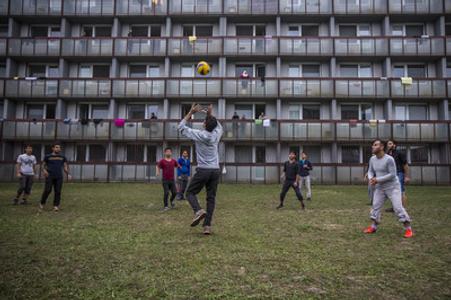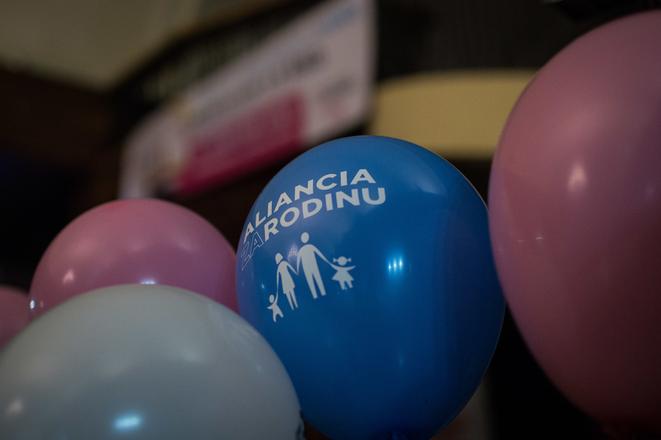“Nothing significant has been achieved on any of these topics,” Števulová told The Slovak Spectator.

From the perspective of human rights advocates – although less so for the general public – the adoption of the Human Rights Promotion and Protection Strategy that the government aimed for all through the election term was the most important undertaking in the sector. The strategy was prepared by the Foreign Ministry, which at that time oversaw the human rights agenda and which spent a lot of time on dealing with more or less petty conflicts between the conservative and the liberal members of the Human Rights Council.
Strategy passed
The preparation of the strategy has shown what a “hot potato” human rights are for government officials, Natália Tomeková from the Open Society Foundation (OSF) told The Slovak Spectator.
“[The officials] are afraid to take an active part in the discussion about the image of Slovakia as a secular country where religious faith is not a state ideology, but rather a private concern of citizens,” Tomeková said.
When the strategy finally passed in February 2015, it outlined tasks like a comprehensive analysis of the state of affairs in protection of human rights. It also proposed creating a nationwide committee for education on human rights, improving the prevention and elimination of all forms of violence and intolerance and introducing equal rights and protection for those living in partnerships outside marriage.
“The problem is that the whole election term we spent creating the strategy to cover up the fact that all the things formulated [in the strategy] should have already been happening,” Šarlota Pufflerová, the executive director of the Citizen, Democracy, Responsibility (ODZ) non-governmental organisation, told The Slovak Spectator. The administration was acting as if it could take a break from really solving the problems in human rights area with the argument that they were busy passing the strategy, she explained.
No improvement for Roma
Problems with excluded Roma communities have been a problem in the long run and every government has thus far pledged to bring some solutions, but the situation has improved very little so far, including in the past four years.
“The government apparently had no plan, no vision, and no interest in improving the position of the Roma minority,” Števulová said.
The one-party government of Robert Fico quite unexpectedly invited the opposition MP Peter Pollák to take up the post of the government’s proxy for Roma communities. Pollák however did not fulfil the expectations that the Roma rights advocates have laid upon him.
Pollák and Interior Minister Robert Kaliňák introduced the so-called Roma reform in 2012, focusing on six areas. Though they promised to gradually introduce the individual parts of the document, they have presented only two areas: education and law enforcement.
LGBTI rights ignored
The lesbian, gay, bisexual, transgender and intersexual community (LGBTI) saw its rights become a major issue as part of the failed referendum on family in February 2015.
The turnout failed to surpass the required 50-percent quorum as only 21.41 percent of eligible voters (slightly less than 1 million people) went to the polling stations. The ballot questions sought to limit the use of the word “marriage” to only the union of a man and a woman, to ban adoption by same-sex couples, and to allow parents to opt their children out of classes dealing with sex or euthanasia at school.
Števulová is also very critical about the fact that no attention has been paid to the rights of LGBTI people and the law still does not recognise registered partnerships for same-sex couples.
“That is apparent discrimination, which is in conflict with the recent ECHR ruling in the case Oliari vs. Italy,” Števulová noted. The case resulted in a groundbreaking ruling that was delivered in July 2015, in which the court asserted that “the absence of a legal framework recognising homosexual relationships violates the right to respect for private and family life”.
Priorities for next term
All the problems that the state is dealing with do have a human rights perspective that should be taken into consideration, Pufflerová noted and mentioned education and health care, the two sectors that have recently gained the most attention due to the protests of teachers and nurses. President Andrej Kiska mentioned health care and schools as the most problematic areas of Slovakia’s life in his New Year’s speech too.
Education and raising awareness about human rights issues not only at schools should be among the next government’s priorities, “so that all those who represent public power are properly trained and understand the commitments we have in this area,” Pufflerová said.
She believes the new government should also pay more attention to the rights of women and reproductive rights.
The OSF also suggests the new government should focus on the action plans that the outgoing government did not have time to pass. The next government should also avoid politically driven nominations, Tomeková of OSF said, like the recent appointment of Smer MP Viera Tomanová as the first commissar of children. In 2016, the parliament will elect a new ombudsman or ombudswoman, she noted.
“What the government definitely shouldn’t be doing is to polarise and fearmonger society and its citizens,” Tomeková said.
Radka Minarechová contributed to this report


 2015 referendum on family failed. (source: Sme)
2015 referendum on family failed. (source: Sme)